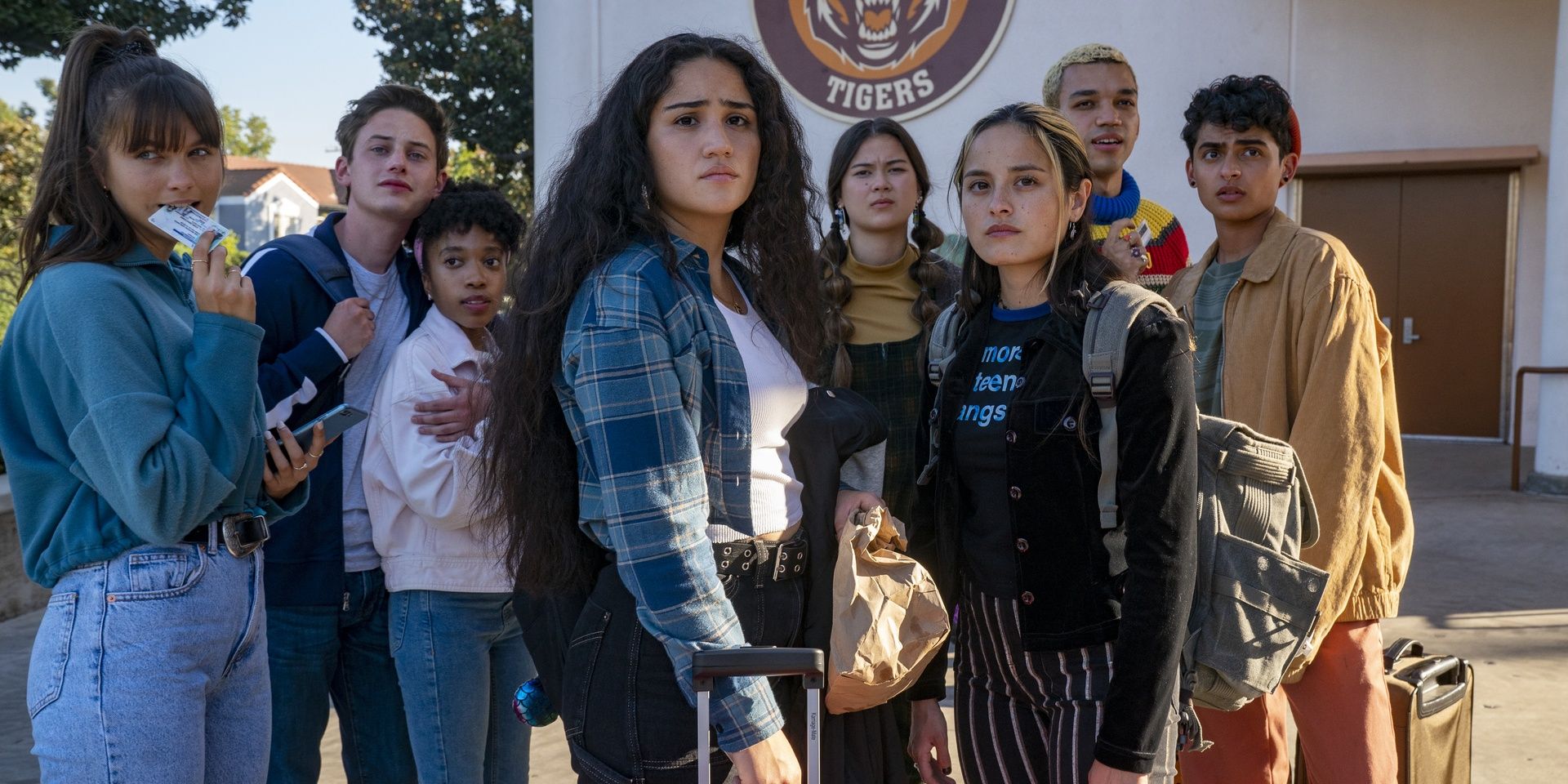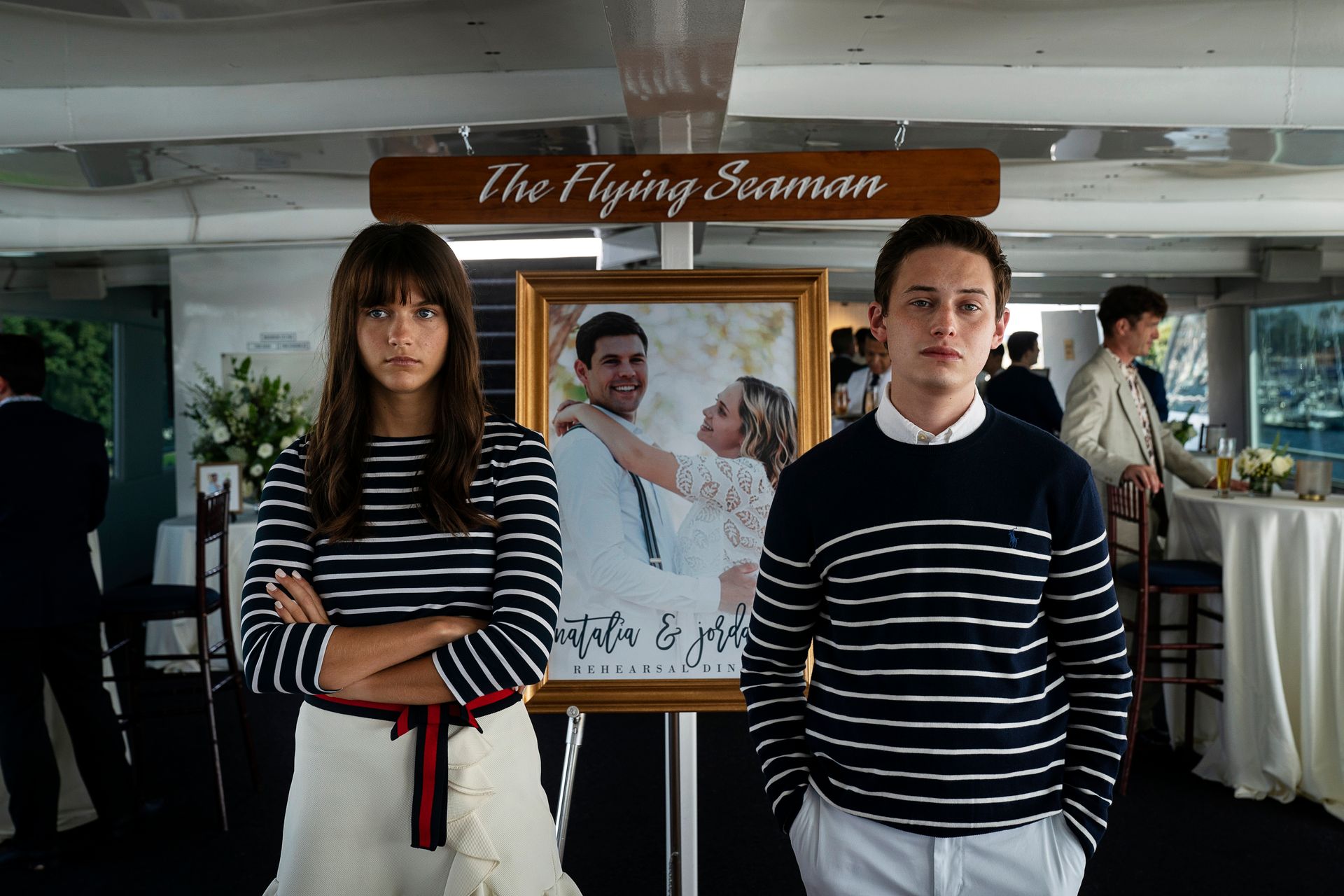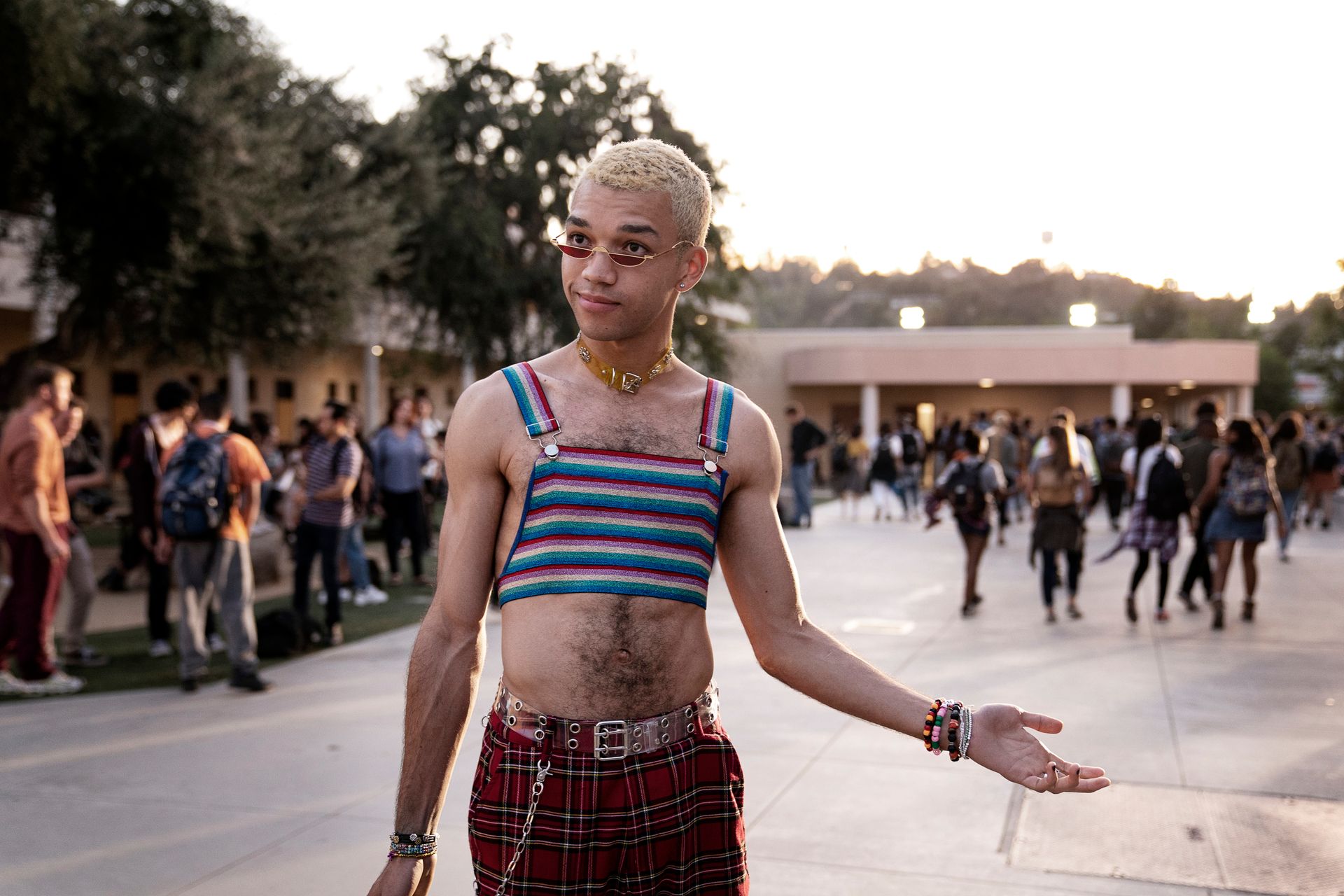If you’re going to produce a show about modern teenagers, it makes a certain sense to hire an actual teenager to create it. That’s how 19-year-old Zelda Barnz ended up as the co-creator of the HBO Max series Generation alongside her father, filmmaker Daniel Barnz (Cake, Beastly). Maybe Zelda brings an important perspective to the series, which is certainly putting in a lot of effort to seem authentic and raw. But Generation tries so hard it’s exhausting, with characters who feel like they’re burdened with communicating everything the Barnzes want to say about Generation Z, rather than being allowed to exist as people first.
"I’m, like, a lot," says lead character Chester (Justice Smith), and that makes him the embodiment of Generation, a flamboyant, attention-grabbing queer teen who’s always trying to shock and embarrass the adults around him. Chester is well intentioned but extremely annoying, which is a good way to describe most of the characters on Generation. In attempting to seemingly throw every Gen-Z concern at the audience within each half-hour episode, the Barnzes have created a show that is the TV equivalent of a whiny teenager who follows their parent around the house until the exasperated adult consents to some ill-advised purchase or excursion.
One of Generation’s selling points is its commitment to diversity, and indeed the characters represent a range of racial, religious and class backgrounds. But its other selling point is its progressive perspective on sexuality, and that seems to translate to giving every character the same mushy, ill-defined orientation that maximizes the possibility for hook-ups among the attractive cast members. There’s even some sexual tension, albeit presumably unintended, between the brother-sister twin characters who are the Gen-Z equivalent of Brandon and Brenda Walsh from Beverly Hills, 90210.
One of those twins is Nathan (Uly Schlesinger), who’s torn over how to reveal his bisexuality to his somewhat conservative parents. Among his peers, though, Nathan is more open, and he’s not shy about his crush on Chester. Chester would be a much better romantic partner for Nathan than his current hook-up Jack (Connor Chavez), who also happens to be the boyfriend of Nathan’s twin sister Naomi (Chloe East). Later, Nathan hooks up with Naomi’s best friend Arianna (Nathanya Alexander), a horrible person who is easily the most unpleasant character on a show that is full of unpleasant characters.
The daughter of two gay dads (like Zelda Barnz herself), Arianna makes constant homophobic jokes and other insensitive remarks, using her dads’ sexuality as an excuse. “My comedy is edgy,” she scoffs, like she’s a middle-aged male comedian who’s been called out for sexist humor. Arianna is just one example of the fine line Generation often fails to walk, and it frequently comes off as a parody of youth wokeness rather than a celebration. Instead of empowered and inspiring, these teens seem entitled and oblivious.
The actors do what they can with these cartoonish characters. Chase Sui Wonders is the highlight as the relatively subdued Riley, who’s often a voice of reason among the more self-destructive characters, and has a sweet budding romance with Greta (Haley Sanchez). Smith, the biggest name among the teen stars, thanks to his roles in Jurassic World: Fallen Kingdom, Detective Pikachu and Netflix series The Get Down, gives a big performance to go with Chester’s big personality that often overshadows any other actor he shares a scene with.
All of the hook-ups and interpersonal feuds reveal Generation as just the latest iteration of the time-honored teen soap (and it’s drawn inevitable comparisons to the more serious and stylish Euphoria, a fellow edgy HBO teen series). Like 90210 (both versions) and The O.C., it takes place in sun-drenched Southern California, with a contrast between wealthy families like Nathan and Naomi’s and working-class households like Chester’s or Greta’s with her aunt and younger sister, who are struggling after Greta’s mom was deported to Mexico. Generation makes superficial references to social issues like that, but it’s far more concerned with who is making out with whom.
That’s not necessarily a problem, and it’s somewhat refreshing to see a teen drama take on the serious subject of a school lockdown (as happens in the second episode) but focus on how it’s just another day at school for these kids, with a vague threat (that amounts to nothing) somewhere in the background. Like a snow day or some other innocuous event in a show from decades past, the lockdown is mostly a chance for the characters to confront their feelings and work out their differences while forced into a confined space together.
But Generation still plays up these elements as shocking, and its most contrived storyline appears in the opening of each of the four episodes available for review, with a flash-forward to one of the teens unexpectedly giving birth in a mall bathroom after failing to realize she was pregnant. That’s an alarmist storyline that dates back at least three decades, and the Barnzes don’t put any kind of original or creative spin on it. Even worse is the ongoing thread about Chester attempting to seduce his sexy guidance counselor, which is played like a naughty romance and not a deep ethical violation (and is a rehash of teen-drama storylines from series like Dawson’s Creek). They’re just empty, button-pushing moments in a show that is irritatingly impressed with its own pseudo-transgressiveness.
Starring Justice Smith, Nathanya Alexander, Chloe East, Nava Mau, Lukita Maxwell, Haley Sanchez, Uly Schlesinger, Nathan Stewart-Jarrett, Chase Sui Wonders and Martha Plimpton, the first three episodes of Generation premiere March 11 on HBO Max, with subsequent episodes debuting each Thursday.



